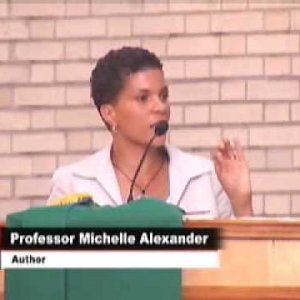- Jun 24, 2007
- 3,282
- 102
- Occupation
- HR/Finance
http://www.asante.net/articles/cruise-asante.html
Afrocentricity is about African people being agents and actors(Asante, 1988; Asante, 1987; and Asante 1991). And in Cruse's construction of the problems of our community he saw that we had either denied, lost, or given away our agency in order to become different from who we are. Some did not support African American culture because in their minds it was separatist; they wanted to demonstrate that they were Americans, meaning that they supported Anglo American culture. This confusion Cruse recognized before others and sought to explore ways to neutralize this destructive attitude.
The message of Harold Cruse is especially important at this time because this is pre-eminently the age of "no race" and "interrace" and "fluid cultures." We are profoundly affected by this postmodern appeal to forget culture. I am unaware that this mode of thinking has captured the imaginations of any other group to the extent that it has afflicted our intellectuals. For example, I do not know of this attitude among the Chinese Americans, Japanese Americans, Korean Americans, Italian Americans, or French Americans. This seems to be a peculiarly African American problem enhanced by the lack of a strong sense of cultural identity promulgated by Africans who have lost their sense of cultural ground.
I am convinced that the Enslavement was more effective as a maker of slaves, mental slaves, than we could imagine. As other cultures recognize the value of their own and in some cases, like the French, continue to legislate ways to preserve the culture, many African American intellectual still suffers from cultural dualism, a split personality, and leans toward the worship of an iconic whiteness. I can think of no example of people of other cultures urging the abandoning of their culture or refusing to practice their culture. This is obviously a behavior of those who feel inferior or have been made to speak as if their culture is inferior because of their own cultural condition. I can see that if the begining of African American history is slavery then it is difficult for many intellectuals to accept this history and therefore they would rather seek to attach themselves to the culture of others. Herein is a problem in Cruse's construction of the cultural options, whose culture do we uphold, the Afro American or the Anglo American? He did not have the options of either African or Native American included in his list.
Because Cruse is a strict African Americanist he does not view the relationship of Africa or the Caribbean to the African American as important. Therefore, the powerful cultural analysis of Cruse is outstanding in its reach but it is incomplete. This is his biggest hurdle and one that makes it impossible for him to understand the response of the African American Negro intellectuals of the l950s and l960s. Cruse had deliberately separated Africa from African Americans and in so doing believed that he was following Du Bois' notion that the African American was truly an American product (See Du Bois, 1903). But Du Bois was wrong and Cruse's support of him was to compound the problem of culture and further conceal the source of the lack of cultural will. I regret that Harold Cruse did not see this mistake because he is one of my heroes. Yet he thought that the ocean was an insurmountable barrier between the African and African American. Since we had been de-tribalized, he thought we could not search for Africa and indeed he believed we would never find it because of the complications of the Americanization of the Negro. But the Negro was to be a transitory person, an artificial creation, an inauthentic African, one without groundedness and thus only a passing phase in the evolution of cultural change. The cycle would be completed only with the return to centeredness in our own cultural grounding, which is not some esoteric back to Africanity idea, but the genuine operation of our psycho-cultural center from our own reality, experience, and perspective.
But this is the crux of the cultural problem. We are African people and when we landed in America we were Africans-Mandinka, Ibo, Yoruba, Asante, Fante, Ibibio, Congo, Angola, Wolof, Ijo, and so forth, not African Americans. We were never made European, though some came fairly close to being so made. We were Africans who retained much of Africa even through the slavery institution and we also were deeply affected by Europe in America, but we remained Africans. Wood may remain in water for ten years but it will never become a crocodile, goes an old saying in Africa. In respect to the cultural question, Cruse's project would have been stronger had he seen that the real issue was the lack of Afrocentricity in the African. Although we could not escape our inherent Africanity in the way we talked, walked, danced, or made music, we did not often consciously choose to be Afrocentric. Therein is the difficulty with our journey in this country.
continue here: http://www.asante.net/articles/cruise-asante.html
Afrocentricity is about African people being agents and actors(Asante, 1988; Asante, 1987; and Asante 1991). And in Cruse's construction of the problems of our community he saw that we had either denied, lost, or given away our agency in order to become different from who we are. Some did not support African American culture because in their minds it was separatist; they wanted to demonstrate that they were Americans, meaning that they supported Anglo American culture. This confusion Cruse recognized before others and sought to explore ways to neutralize this destructive attitude.
The message of Harold Cruse is especially important at this time because this is pre-eminently the age of "no race" and "interrace" and "fluid cultures." We are profoundly affected by this postmodern appeal to forget culture. I am unaware that this mode of thinking has captured the imaginations of any other group to the extent that it has afflicted our intellectuals. For example, I do not know of this attitude among the Chinese Americans, Japanese Americans, Korean Americans, Italian Americans, or French Americans. This seems to be a peculiarly African American problem enhanced by the lack of a strong sense of cultural identity promulgated by Africans who have lost their sense of cultural ground.
I am convinced that the Enslavement was more effective as a maker of slaves, mental slaves, than we could imagine. As other cultures recognize the value of their own and in some cases, like the French, continue to legislate ways to preserve the culture, many African American intellectual still suffers from cultural dualism, a split personality, and leans toward the worship of an iconic whiteness. I can think of no example of people of other cultures urging the abandoning of their culture or refusing to practice their culture. This is obviously a behavior of those who feel inferior or have been made to speak as if their culture is inferior because of their own cultural condition. I can see that if the begining of African American history is slavery then it is difficult for many intellectuals to accept this history and therefore they would rather seek to attach themselves to the culture of others. Herein is a problem in Cruse's construction of the cultural options, whose culture do we uphold, the Afro American or the Anglo American? He did not have the options of either African or Native American included in his list.
Because Cruse is a strict African Americanist he does not view the relationship of Africa or the Caribbean to the African American as important. Therefore, the powerful cultural analysis of Cruse is outstanding in its reach but it is incomplete. This is his biggest hurdle and one that makes it impossible for him to understand the response of the African American Negro intellectuals of the l950s and l960s. Cruse had deliberately separated Africa from African Americans and in so doing believed that he was following Du Bois' notion that the African American was truly an American product (See Du Bois, 1903). But Du Bois was wrong and Cruse's support of him was to compound the problem of culture and further conceal the source of the lack of cultural will. I regret that Harold Cruse did not see this mistake because he is one of my heroes. Yet he thought that the ocean was an insurmountable barrier between the African and African American. Since we had been de-tribalized, he thought we could not search for Africa and indeed he believed we would never find it because of the complications of the Americanization of the Negro. But the Negro was to be a transitory person, an artificial creation, an inauthentic African, one without groundedness and thus only a passing phase in the evolution of cultural change. The cycle would be completed only with the return to centeredness in our own cultural grounding, which is not some esoteric back to Africanity idea, but the genuine operation of our psycho-cultural center from our own reality, experience, and perspective.
But this is the crux of the cultural problem. We are African people and when we landed in America we were Africans-Mandinka, Ibo, Yoruba, Asante, Fante, Ibibio, Congo, Angola, Wolof, Ijo, and so forth, not African Americans. We were never made European, though some came fairly close to being so made. We were Africans who retained much of Africa even through the slavery institution and we also were deeply affected by Europe in America, but we remained Africans. Wood may remain in water for ten years but it will never become a crocodile, goes an old saying in Africa. In respect to the cultural question, Cruse's project would have been stronger had he seen that the real issue was the lack of Afrocentricity in the African. Although we could not escape our inherent Africanity in the way we talked, walked, danced, or made music, we did not often consciously choose to be Afrocentric. Therein is the difficulty with our journey in this country.
continue here: http://www.asante.net/articles/cruise-asante.html





